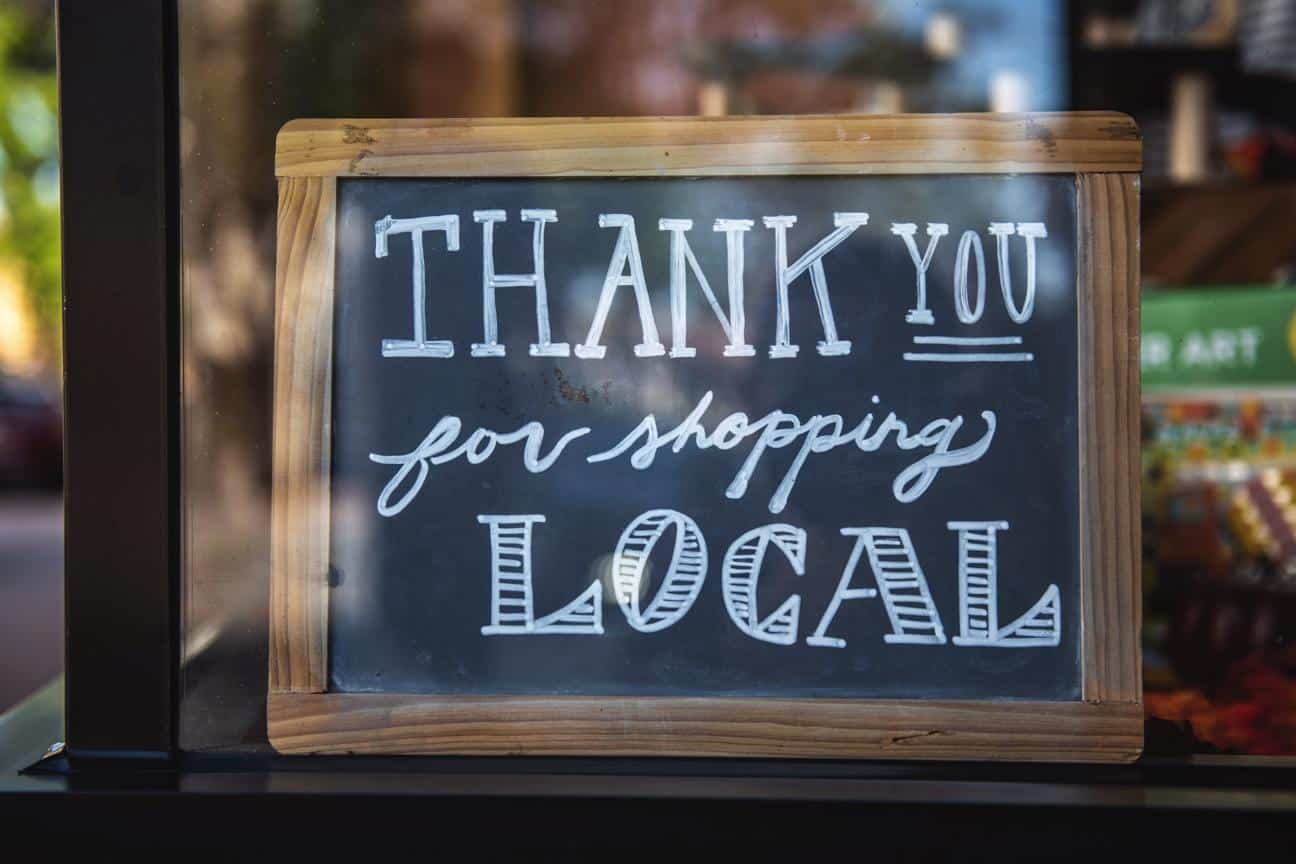Finance
Small Businesses To Tackle Long List Of Challenges In 2023

NEW YORK – As 2023 begins, small businesses will face a mix of old and new challenges. A looming recession, high (but easing) inflation and labor woes are just a few issues that small businesses will have to deal with after 2022. There are also new rules, such as a proposal to change how gig workers are classified and the fact that more states are making it a law that pay must be made public. After three difficult pandemic years, what happens in 2023 will significantly impact whether small businesses across the country can stay afloat.
RECESSION ANGER
In some ways, whether or not the economy is headed for a recession is less important for small businesses than day-to-day operations.
According to Nela Richardson, chief economist for payroll company ADP, small business owners should concentrate on larger issues such as Labor and wages.
“For the most part, the recession is an academic question,” she said. “We won’t know for several months until it happens, and no one on Main Street makes that call. It has nothing to do with hiring and turnover.”
Given the economic uncertainty, small businesses will need to keep costs under control and operations running as efficiently as possible, according to Ray Keating, chief economist for the Small Business & Entrepreneurship Council.
Technology, according to Keating, can help with efficiency, and one way to keep costs low is to cast a wider net in terms of suppliers.
BUSINESS INFLATION
Businesses must keep a tight grip on costs because inflation appears to have peaked last summer but remains high. According to the most recent government data, consumer prices rose 7.1% year on year in November, down from 7.7% in October.
According to experts, inflation is unlikely to return to pre-2020 levels owing to higher wages and low employment. According to the monthly employment report released on Friday, wages increased by 4.6% year on year in December, with the unemployment rate remaining at 3.5%.
“We want unemployment to rise because if it doesn’t, wage growth will slow, and not only is there no evidence of that happening, but wage growth is about to get rocket fuel this time of year when wages rise,” said David Lewis, CEO of HR consulting firm Operations Inc.
He expects inflation to remain in limbo.
“I don’t see inflation falling significantly… but I don’t see it is rising above that 8% level,” he said.
LABOR
Hiring and retaining employees is a constant challenge for small businesses. The situation is especially bleak at the start of the year. Because companies typically give raises or bonuses at the end of the year, many employees use mid-January to mid-April to determine whether they need to change jobs.
“Everything we’re seeing or hearing suggests that companies need to look at increases that are double what they used to do in the last, on average, 15 years to keep up with everyone,” said Lewis of Operations Inc. “Unfortunately, smaller businesses have the fewest resources to contribute.”
Because small businesses need help to keep up with raises at larger corporations, they will need to find new ways to retain employees in 2023.
According to Keating of the Small Business & Entrepreneurship Council, more extensive on-the-job training could be one solution for small businesses in 2023.
“Not that they don’t train them now, but they need to go deeper than they have in the past and train across the board. “That’s one of the solutions to these labor issues,” he said.
THE GIG WORKER RULE PROPOSED
The Labor Department has proposed a rule that would make it easier to classify independent workers as employees, contributing to a long-running debate over whether gig workers such as Uber drivers or Instacart delivery workers are contractors or employees.
According to the Labor Department, the proposal will protect workers and “level the playing field” for businesses that correctly classify their employees, reducing the number of misclassified employees.
Employees are eligible for benefits such as the minimum wage and Social Security. However, critics of the proposed rule argue that gig workers only sometimes want employee status and that the new rule will burden small businesses.
The proposed rule is “much too broad, unwieldy, arbitrary, and confusing,” according to Karen Kerrigan, CEO of the Small Business & Entrepreneurship Council. “If enacted, it will drag countless numbers of independent contractors and freelancing individuals into the misclassified pit,” she added.
The proposal only applies to Labor Department-enforced laws, such as the federal minimum wage. Employers and courts, however, frequently use Labor Department rules as a guideline for larger issues.
The final Labor Department decision is expected this year, likely in the first quarter.
CHANGES IN THE MINIMUM WAGE/STATE REGULATIONS
Finally, small businesses should be aware of upcoming regulatory changes, particularly state regulations, that will take effect in 2023.
In 2023, 27 states will raise their minimum wages. In Michigan, for example, the minimum wage is set to rise from $9.87 to $10.10 per hour. California has set the minimum wage for all employees, regardless of employer size, at $15.50 per hour. This is shifting from $15 for employers with 25 or more employees to $14 for employers with fewer than 25 employees.
Pay transparency legislation is also taking effect. California began requiring employers with 15 or more employees to list salary ranges on job postings on January 1. In New York, a salary transparency bill requiring pay ranges on job postings is set to take effect in September.
Minimum wage and pay transparency laws vary greatly by state, so small businesses should stay current on any local laws changes.
SOURCE – (AP)
Finance
Crypto And Meme Stock Boosters Aren’t Doing ‘Trump Trades’ — They’re Just Doing Trades

Bitcoin bulls and meme stock traders are excited about the prospect of another Donald Trump presidency. Or at least the possibility of conducting some momentum trading in the next 18 days.
Here is the deal: Bitcoin, the world’s largest cryptocurrency, surged briefly to a three-month high above $68,000 on Wednesday, fueled by a combination of signals, including the former president’s statement on X that “crypto is the future” and Vice President Kamala Harris’ nod Monday to regulatory support for digital assets.
At the same time, Trump Media shares were recovering from Tuesday’s inexplicable 10% dip and resumed their meme-stock-like trend of rising without any fundamental cause to do so. The stock closed Wednesday up more than 15%.
Crypto And Meme Stock Boosters Aren’t Doing ‘Trump Trades’ — They’re Just Doing Trades
What do digital currencies and media stocks have in common?
Not much generally. However, in recent weeks, they appear to have shifted in tandem with traders’ estimates of Trump’s reelection chances.
To be clear, these traders do not have a crystal ball; they are simply wagering, with varied degrees of skill, on highly volatile assets.
Crypto traders are ecstatic at the Republican nominee’s apparent 180 on an asset class he previously branded as a fraud. Even if Tuesday’s launch of Trump-backed cryptocurrency platform World Liberty Financial revealed lukewarm interest and numerous technical issues, the former president has spent months recruiting industry billionaires and generally telling devotees what they want to hear.
That enthusiasm skyrocketed Wednesday when Trump extended his lead over Harris on Polymarket, a cryptocurrency-focused predictions website where you can wager on the election outcome. According to those investors, Trump has a 59% probability against Harris’ 41%. (This is drastically out of line with national polls, including CNN’s “Poll of Polls,” which currently show a near tie.)
“As the election approaches, voting estimates may cause market swings,” says Robinhood’s senior director of investment strategy, Steph Guild. Bitcoin may gain from Trump’s improved odds, she said, “given that he is seen as more friendly to crypto in general.”
Aside from the election prediction game, Adrian Fritz, global head of research for crypto business 21shares, tells me that bitcoin, a bellwether for the broader crypto market, is being propelled by other macro tailwinds. Not least, central banks around the world are lowering interest rates, making risky assets such as cryptocurrency more appealing. Plus, it’s #Uptober, a month when digital assets have historically performed well.
“It’s no surprise that it became way more political on both sides,” Fritz points out. “The positive aspect is that it draws attention to the entire space…” We firmly believe that, regardless of who wins, the outcome will be beneficial to the industry.
According to Barron’s journalist Al Root, the equivalent of all DJT shares available for sale has changed hands multiple times in the last week, with investors hanging onto the stock for an average of only two days. For instance, Root observes that Apple shares take more than a year to fully turn over.
Crypto And Meme Stock Boosters Aren’t Doing ‘Trump Trades’ — They’re Just Doing Trades
That level of volatility makes cryptocurrency appear stable in comparison, but it attracts a certain type of iron-stomach trader looking to purchase on the rise and sell before it peaks. (Sounds simple, but your investment adviser might tell you you’d be better off going to a casino, where you could have a great cocktail and enjoy playing cards while losing money.)
Fritz thinks that momentum plays are “absolutely” happening. “This affects both consumers and professional investors. “The basis trade is one of the most popular bitcoin strategies,” he stated.
(In other words, hedge funds are leveraging up to execute complicated trades that take advantage of slight price variations between bitcoin’s spot price and futures market pricing, increasing trading volume even further.)
Bottom line: Bitcoin and Trump Media may get considerably more volatile in the coming weeks as more traders enter the market. However, if analysts or voters are looking to the market for clues as to how this presidential election will play out, keep in mind that traders will trade. While some sincere believers may be investing in supposedly pro-Trump assets, the great majority are simply working the casino floor, hoping to cover their bets and gain a few bucks.
SOURCE | AP
Finance
Economist Warns Over Canada Slipping into a Cashless Society

Canadian economist Carlos Castiblanco believes that Canada should follow in the footsteps of other countries and enact legislation to protect the use of cash in the country.
Castiblanco, together with the group Option Consommateurs, is urging the Trudeau government to follow the lead of other jurisdictions in the United States and Europe in enacting legislation to slow the transition to a cash-less society.
He stated that barely 10% of transactions in Canada now use cash, and that Canada must defend cash now before more merchants begin to refuse it totally.
It is vital to act now, he told CBC Radio’s Ontario Today, before businesses begin removing all of the infrastructure required to handle and manage actual cash.
“They are already used to dealing with cash, so this is the moment for the Trudeau government to act, before it is more complicated.”
A recent online poll of almost 1,500 people commissioned by a different group, Payments Canada, discovered that the majority of respondents were concerned about the potential of cashless stores and preferred to keep the ability to use cash.
Bank fees in Canada
Above all, cash has no bank fees, is not vulnerable to privacy breaches, and may be utilized during internet outages.
The Payments Canada paper, “Social policy implications for a less-cash society,” suggests legislative action, saying that cash-based transactions have decreased from 54% in 2009 to 10% by 2021.
Aftab Ahmed, one of its writers, explained who would be most affected by a cashless future in a recent piece for Policy Options, the Institute for Research on Public Policy’s online magazine.
“For many Canadians, including Indigenous people, homeless people, aging citizens, and others who are vulnerable, cash is both a beacon of economic stability and a source of financial insecurity. “Cash is an emergency lifeline and a symbol of cultural traditions,” Ahmed explained.
“Canada must avoid sleepwalking into a cashless future and instead recognize the risk of exacerbating financial exclusion of those most vulnerable.”
Refusing to accept cash
The currency issue has already caught fire outside of Canada, according to Castiblanco, with some US states and territories beginning to pass legislation to preserve access to cash.
In 2019, Philadelphia became the first city in North America to prohibit “any person selling or offering for sale consumer goods or services at retail from refusing to accept cash as a form of payment.”
Other U.S. cities, including New York, Seattle, and Los Angeles, have since taken action on the issue.
In New York, the policy recommends fines of up to $1,500, with the Councillor who proposed the guidelines claiming that prohibiting cashless transactions preserves privacy, equity, and consumer choice.
European countries such as Norway, Spain, and Ireland have enacted similar legislation. In Ireland, the rule would mandate cash transactions at companies like as pharmacies and grocery stores that supply basic goods and services.
Source: CBC
Finance
UK National Debt Rises to the Highest in 62 Years

UK national debt grew this month to its highest level as a share of the economy since 1961, according to figures released on Friday, adding to the financial issues that the new administration will face when it takes office following a general election in two weeks.
The UK national debt, excluding state-controlled banks, hit 2.742 trillion pounds ($3.47 trillion), or 99.8% of annual GDP, in May, up from 96.1% the previous year, according to the Office for National Statistics.
The increase came despite somewhat lower-than-expected government borrowing in May, which was 15.0 billion pounds, compared to experts’ median projection of 15.7 billion pounds in a Reuters survey.
Following an election on July 4, Britain appears to be on the verge of a change of government, with Keir Starmer’s Labour Party leading Prime Minister Rishi Sunak’s Conservatives in surveys.
During the COVID-19 epidemic, state debt in Britain skyrocketed, and the public finances have been hampered by poor growth and a 16-year high in Bank of England interest rates.
Western Nations Debt
Most other Western countries had significant rises in debt during the same period, although British debt levels are lower than those of the United States, France, and Italy.
A person enters the Treasury government building in London, Britain, on March 5, 2024. REUTERS/Toby Melville/File Purchase Licensing Rights opens a new tab.
Borrowing in the UK totaled 33.5 billion pounds in the first two months of the fiscal year, 0.4 billion more than the same period in 2023 but 1.5 billion pounds less than government budget estimates expected in March.
Capital Economics consultants warned that the lower-than-expected borrowing figures represented less public investment and would provide little comfort to Britain’s future finance minister.
“They do little to reduce the scale of the fiscal challenge that awaits them, in part because of the upward pressure on the debt interest bill from higher interest rates,” said Alex Kerr, an assistant economist at Capital Economics.
Labour and the Conservatives want to keep to existing budget rules that require official estimates – most recently updated in March – to indicate that debt as a proportion of GDP is dropping in the fifth year of the forecast.
Higher interest rates than projected in March’s budget left Britain’s next chancellor with only 8.5 billion pounds of freedom to meet these standards, down from the historically low 8.9 billion in March, Kerr noted.
Both Labour and the Conservatives have committed not to raise income tax, value-added tax, or other major levies, but government budget predictions in March revealed that tax as a percentage of GDP was on track to hit its highest level since 1948.
Source: Reuters
Canada’s Household Debt Nears $3 Trillion Under Trudeau
-
News3 weeks ago
The Biden Administration can go Ahead With Student Loan Forgiveness, Says a Federal Judge.
-
News3 weeks ago
Tesla Recalls 27,000 Cybertrucks Due To A Rearview Camera Issue
-
World3 weeks ago
Uber Hires Yandex Spinoff Ride-Hail and Autonomous Delivery With Avride
-
Tech3 weeks ago
Accenture and NVIDIA Collaborate to Enhance AI Implementation.
-
Tech3 weeks ago
Meta has started the Facebook Content Monetization Program.
-
Election News3 weeks ago
Chief Operating Officer Of Truth Social’s Parent Company Resigns










































